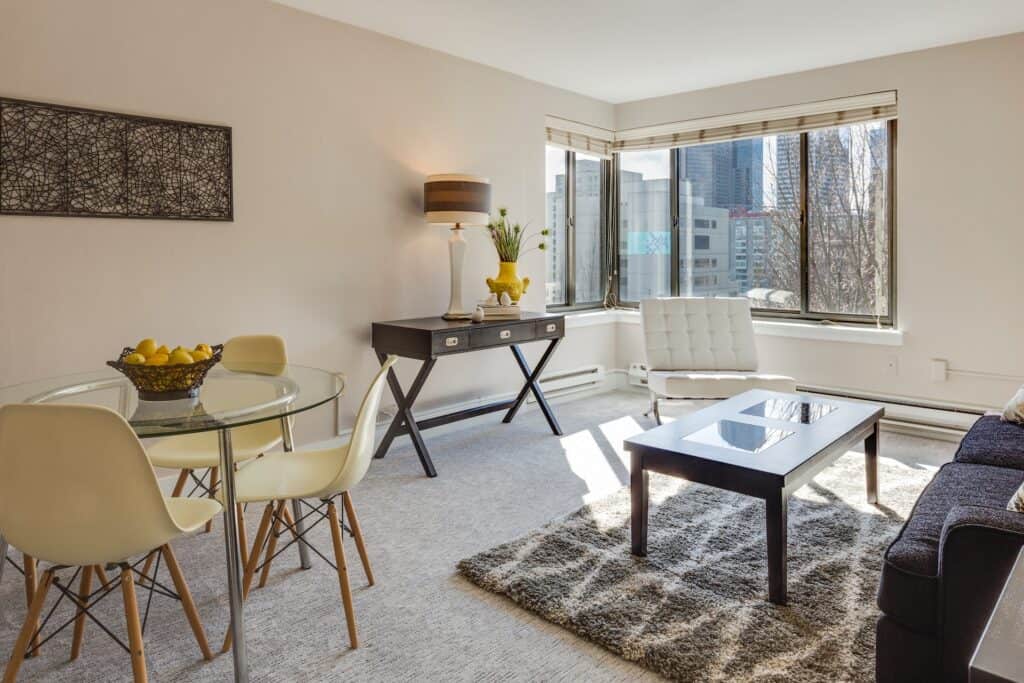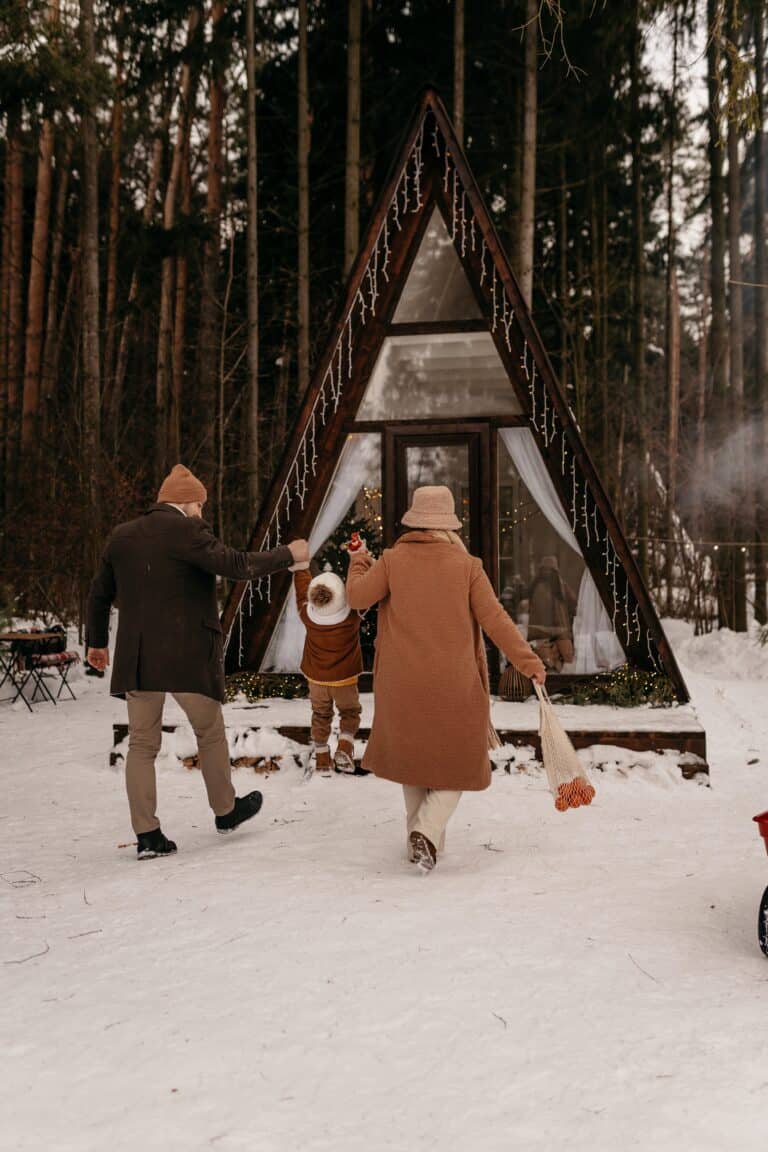
Are you looking to start a short-term rental business? Or maybe you’re thinking of adding to your existing portfolio. Buying an Airbnb investment property in a top location is key to succeeding in your business venture.
Because no matter how good you are at hosting or managing an Airbnb listing, you won’t be able to maximize your returns if the real estate property isn’t a winner, to begin with.
So before launching out on short-term renting, there are a few important steps that you should do to make sure you score an Airbnb investment property that’s a sure winner.
The type of property you choose will largely depend on your desired location and type of guests. If you want to host in a busy city, you might want to invest in a small apartment or condo. You’ll likely attract business travelers and tourists attending a special event.
According to SmartAsset, full 2-bedroom apartments are the way to go. Rates for these types of apartments are significantly higher than those for single-room types and income after expenses ranged from $15,000 to $31,000 as of 2022.
But if you want an Airbnb investment property in a resort area such as a beach or mountainside, a single-family home with a yard and lots of privacy would be a great choice. You’ll likely draw couples, young families, or groups of friends.
But you certainly don’t have to limit yourself to traditional types of real estate. Even tiny house Airbnbs and glamping businesses are rising in both popularity and income revenues.
Read also: Unique Stays are So Hot Right Now! (And They’re Here to Stay!)
So how do you tell if a property is a good investment? Here are 7 things to guide you when buying a home to Airbnb.
First, work out your budget. Calculate your savings, your current streams of income, and your monthly expenses. Think about any changes you might expect in your regular earnings, needs, and living expenses over the next few years.
Be honest with your cash situation. You’ll need precise numbers to plan how much you can spend on a down payment and other initial costs involved in buying a rental property.
Set a maximum but comfortable price that you can afford with your budget and stick to it.
Keep in mind that the price of properties you’ll be looking at isn’t the only cost you’d have to pay. Buying a home comes with a lot of other costs, some of them hidden.
They include:
And remember to keep at least a few months of cash reserves in case you can’t keep your unit occupied all the time.
Next, figure out how you’re going to finance your investment.
Most first-time Airbnb investors choose a standard mortgage, but you can look at alternative ways like Airbnb loans, FHA loans, hard money, and HELOC.
No matter what kind of loan you’re taking out, be sure you understand these important things:
Mortgage rates have gone up a lot over the past year. According to Mashvisor, the 30-year fixed mortgage rate was 6.65% at the beginning of March 2023, up from 3.76% the year before.
So an alternative would be rental arbitrage, where you lease a property from another owner and then sub-lease it as a short-term rental.
The next thing to do is decide on your target clients. Different types of travelers choose Airbnb over hotels, and they all have their own sets of needs, expectations, and preferences.
You can choose amongst:
Target a specific group to cater to and think of how you can meet their needs and wants. Then decide on a type of property that would best suit them.
Studio or one-bedroom apartment?
A two-bedroom house?
A large duplex with a yard and parking spaces?
Or a cabin in the woods?

Next, look for a destination that’s good for your target guests. Here are some of the things you’ll want to consider:
Then, narrow down your search to the neighborhood level. This is critical because different parts of an area can be more advantageous than others. A bad neighborhood can really break your chances of getting a high occupancy.
Look for places with plenty of amenities like restaurants, shops, gyms, public transportation, and high walkability.
And of course, low crime rate.
Each neighborhood, county, and city has different rules and ordinances for short-term renting. Some of them may be very strict.
You’ll want to make sure your chosen building and area allow the short-term renting of properties that aren’t owner-occupied.
You’ll also want laws that don’t limit the number of days you can rent out your home per year.
Look at local government websites, the Chamber of Commerce, local media, and other online sources. Check HOA rules as well.
Make sure you understand all the regulations and what taxes and fees you’ll have to pay. The last thing you wanna do is to break the law, pay stiff fines and go to court.
There are lots of real estate websites you can visit to find available properties: MLS, Zillow, Trulia, ApartmentGuide, HotPads, and Sublet, to name a few.
You can also look for foreclosures, bank-owned, and off-market properties which can give you a much better ROI because of their lower prices.
Then do a comparative market analysis or CMA.
Find a few homes in the same area that are similar to the ones you’re interested in – similar in size, age, and condition – that have been sold in the last few months.
Check their prices and compare them with your desired properties. The comparison will help you figure out the fair market value of your chosen properties and prevent you from paying more than you should for them.
Consider working with agents or brokers. They know where to find the best Airbnb properties to buy in specific locations, are familiar with local rules and regulations, and are experts at negotiating.
They can also get you a better price than what you’d likely be able to get on your own.
You can use real estate investment tools like AirDNA, PriceLabs, Rabbu, Alltherooms, Airbnbtics, Transparent, and the like, to project the profitability of your investment.
These are tools that provide metrics and data analysis so you can gauge:
Many experts recommend locations with an average monthly rental income of $2,000 or more, a cash-on-cash return rate of at least 2%, and a cap rate above 8%.
In spite of a so-called ‘Airbnbust’ and stiff competition in some saturated markets, Airbnb investing is still a good way to make money in real estate. If you play your cards right.
And IF you snag a positive cash-flow property.
Follow the steps above and you should be on your way to launching a profitable Airbnb business.
Ready to learn how we built and operate a $2M/year short-term rental business, operate properties throughout the USA remotely, and acquired 70+ properties without owning any in just 2 years? Attend our free online master class to learn how you can do the same. Click here.